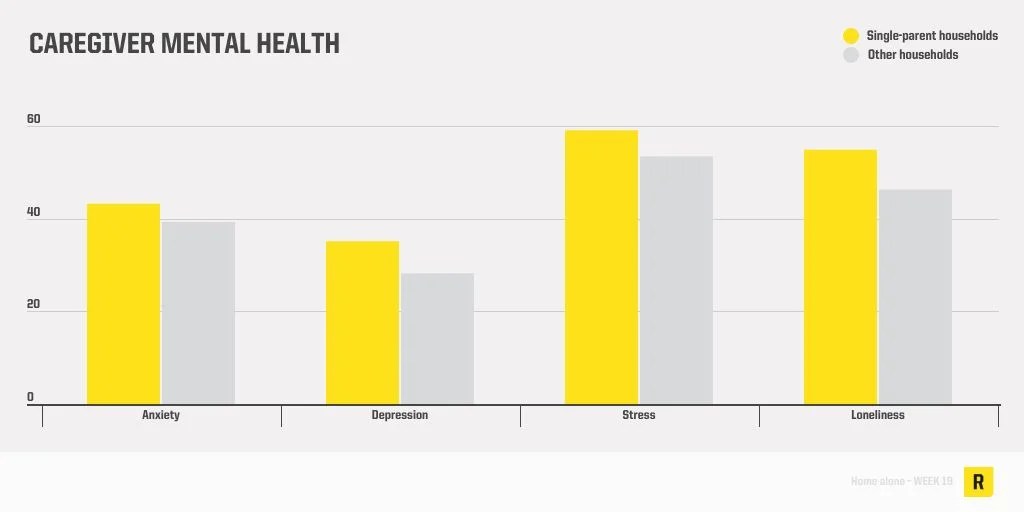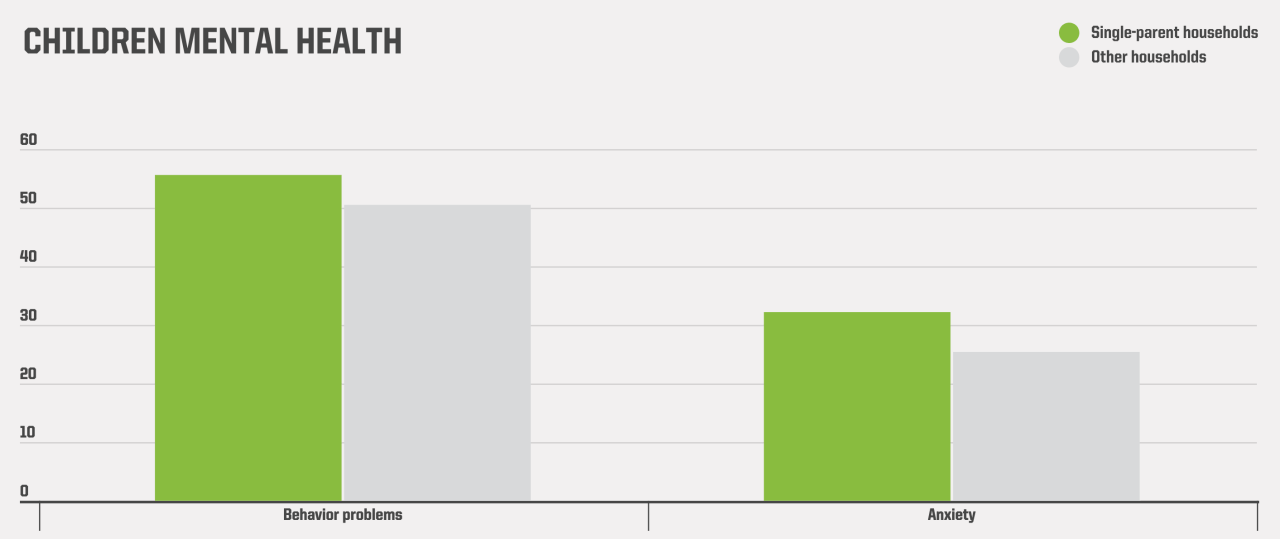COVID-19 is affecting every part of family life, and for parents of young children the financial strain, emotional stress, and burden of care are especially overwhelming. We know that the emotional wellbeing of parents affects their children’s development, especially in the early years of life.
In a recent report of a weekly survey to about 7,400 caregivers with children under five, researchers from the University of Oregon found that single parents in particular are struggling to manage their own health and the health of their children while navigating the pandemic. In their November report, “Home Alone: The Pandemic Is Overloading Single-parent Families,” the researchers describe how the impact of COVID-19 is more distressing for single parent families than other types of households. Higher caregiver stress, anxiety, and loneliness contribute acute stress to children’s environment, which in turn increases feelings of stress and anxiety in children themselves. In America today, there are about 13.6 million single parent households, and 22.4 million children being raised in them.
In the health realm, this added distress is contributing to a decline in access to health care for young children. Nearly 30% of families have missed a well-baby or well-child visit, compared to approximately 10% pre-pandemic. Many of these visits were missed because of difficulty finding child care or care for another family member. A disproportionate share of low-income households are unable to make their appointments (for well-baby, well-child and vaccination appointments). Some states reported a 40% decline in children’s vaccinations from the 2019 rates, and children 18 months – 5 years are most likely to miss their appointments.
We also know that excessive parental stress can have negative effects on child development. Brain development research shows that healthy and supportive relationships between young children and at least one parent deepens the child’s resiliency, stress coping skills, and learning capacity. Maternal depression in particular has a demonstrated connection to young children’s cognitive and social-emotional skills.
Overall, the survey shows that families with young children are facing extreme emotional and financial difficulties due to or coincident with COVID-19. Ensuring access to coverage is an important place to start. For the 12 states that have not expanded Medicaid to all adults earning below 138% of the federal poverty level, recent research has shown Medicaid expansion is a critical way to support parents of young children, who, after gaining coverage, can better support their own health and the health of their developing children.
In addition, the University of Oregon researchers recommend the following policy measures:
- More stringent public health measures to control the threat of COVID-19.
- “Targeted financial relief” for single parent households to address the growing rates of child distress in these populations. If parents can cover basic expenses, their stress will reduce and children’s wellbeing will improve.
- Create or support accessible and inexpensive childcare that is still safe for children, whether that be care from friends, family, or a certified center.
It’s clear from the survey that single parents are overwhelmed. All this stress is manifested through fewer visits to the doctor, and compounded by difficulty paying for food, rent, and other essentials. The RAPID-EC’s newest report highlights the importance of supporting single parent households in meaningful ways through legislation.





